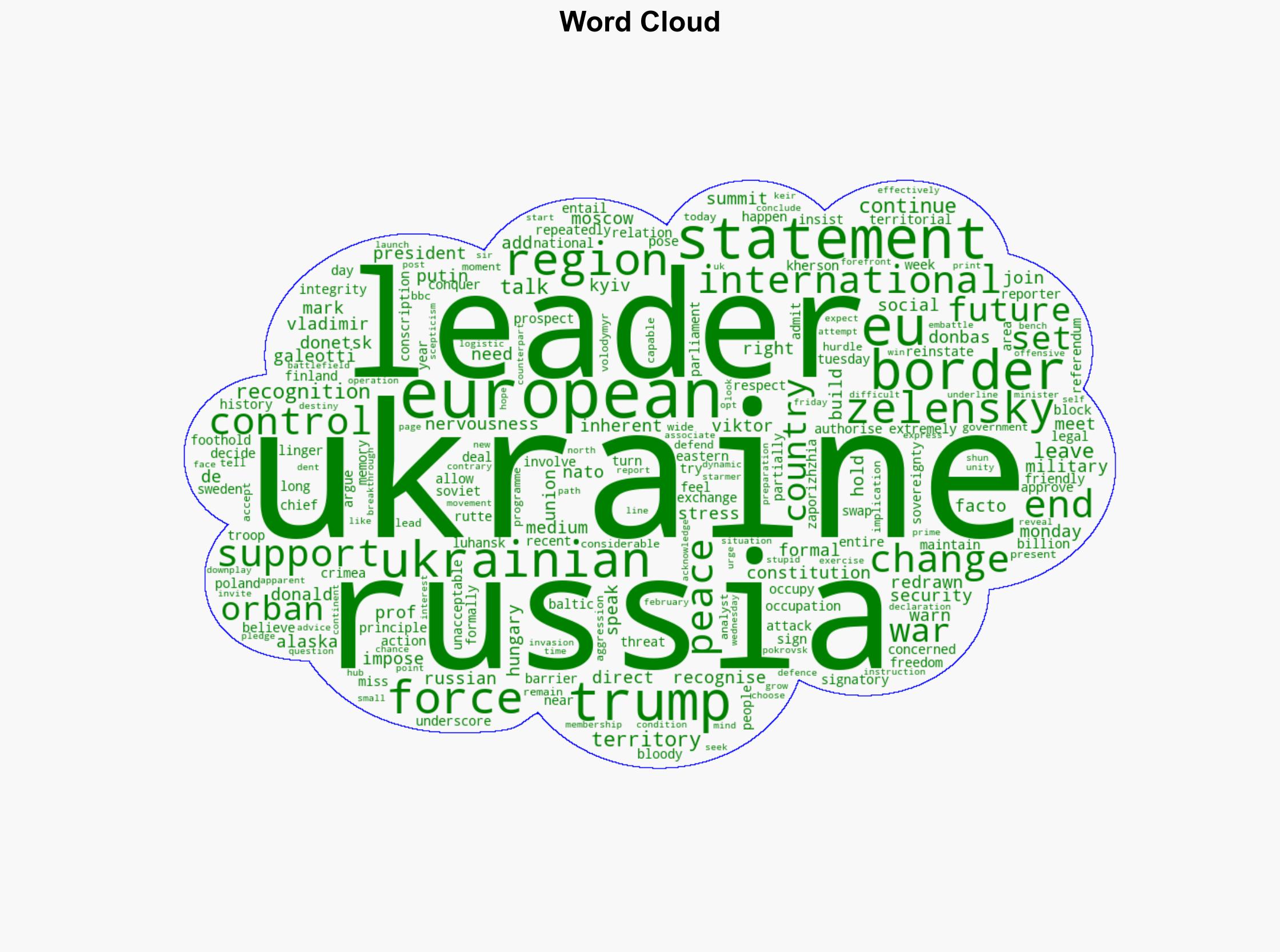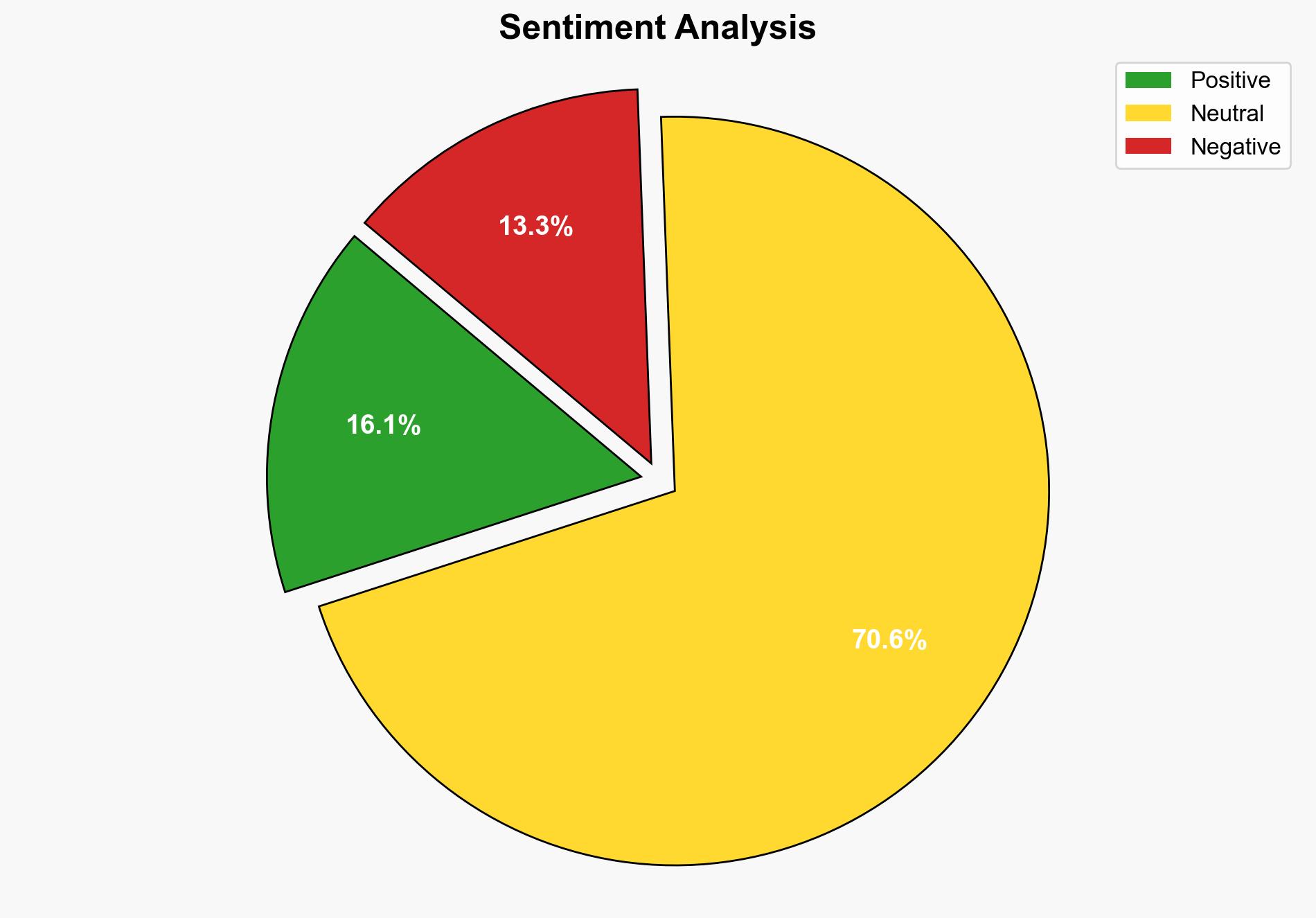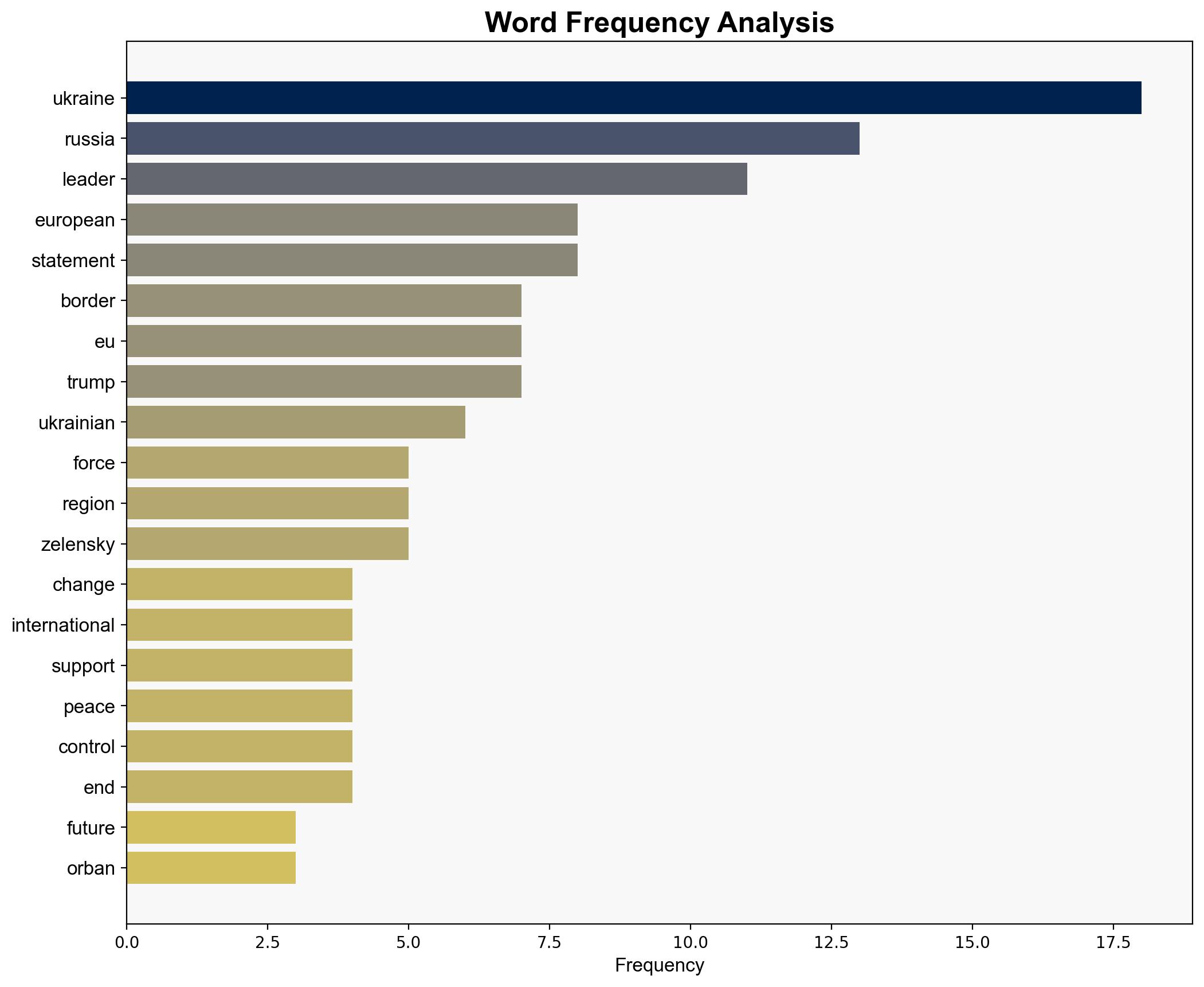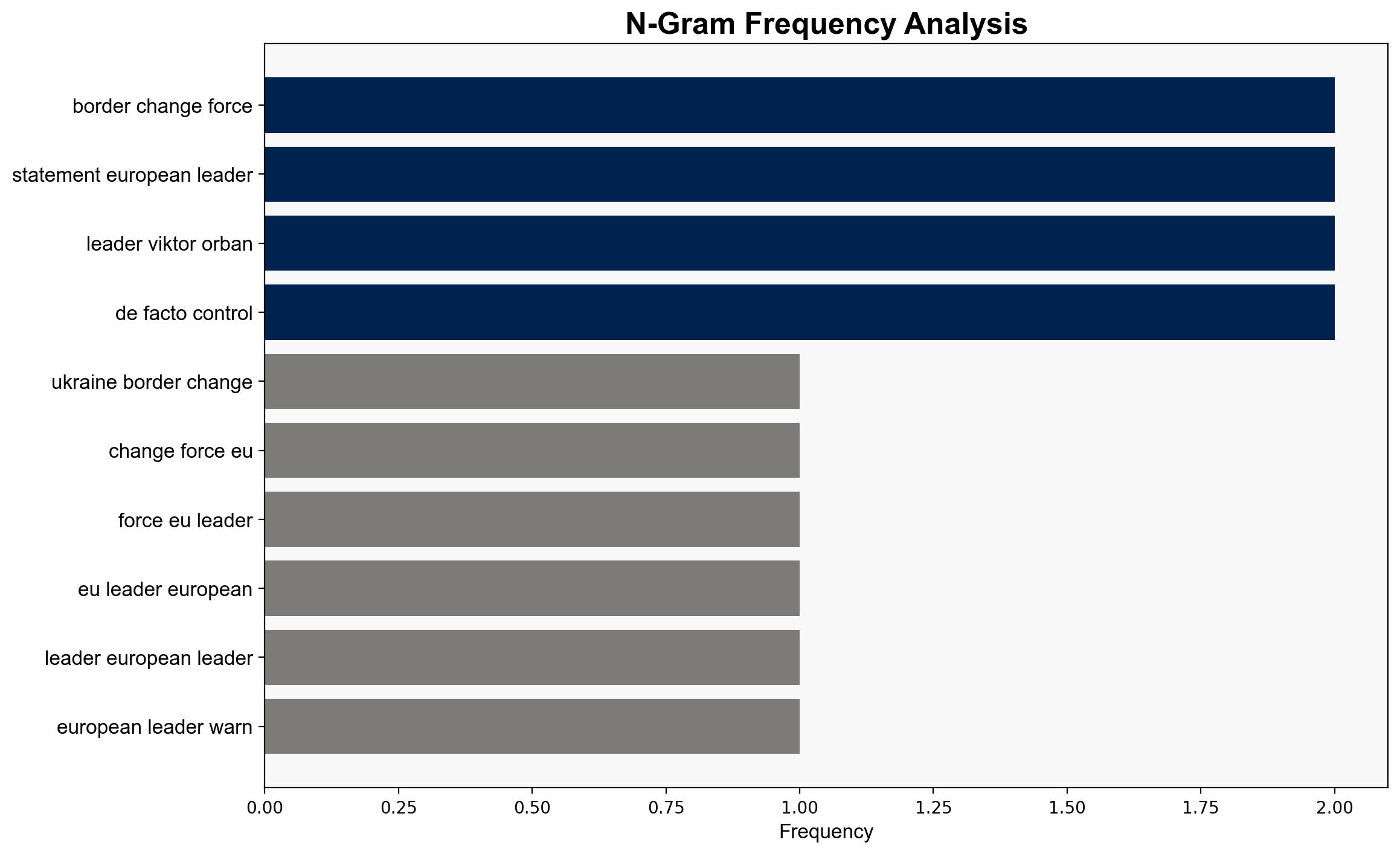Ukraine’s borders must not be changed by force EU leaders say – BBC News
Published on: 2025-08-12
Intelligence Report: Ukraine’s borders must not be changed by force EU leaders say – BBC News
1. BLUF (Bottom Line Up Front)
The most supported hypothesis is that European leaders are committed to maintaining Ukraine’s territorial integrity and are prepared to continue supporting Ukraine militarily and politically to prevent any changes to its borders by force. This is based on the consistent messaging from EU leaders and the strategic actions taken by European countries to bolster their defenses. Confidence level: High. Recommended action: Strengthen diplomatic and military support for Ukraine while preparing for potential escalations or negotiations involving territorial disputes.
2. Competing Hypotheses
1. **Hypothesis 1**: European leaders are unified in their stance against any forced changes to Ukraine’s borders and will continue to support Ukraine to uphold international law and regional stability.
2. **Hypothesis 2**: Despite public statements, there is a lack of consensus among European leaders, with some countries potentially willing to negotiate territorial changes to achieve peace, as indicated by Hungary’s stance and Trump’s suggestions.
Using the Analysis of Competing Hypotheses (ACH) 2.0, Hypothesis 1 is better supported by the consistent public statements from EU leaders, the military preparations by European countries, and the historical context of European border concerns. Hypothesis 2 is weakened by the lack of broad support for territorial negotiation and the strategic risks it poses.
3. Key Assumptions and Red Flags
– **Assumptions**: EU leaders will maintain a unified stance; military support will deter further aggression; public statements reflect actual policy intentions.
– **Red Flags**: Hungary’s divergent position; potential for internal EU disagreements; reliance on public statements without corroborating actions.
– **Blind Spots**: Underestimation of Russia’s strategic adaptability; potential shifts in U.S. policy under different leadership.
4. Implications and Strategic Risks
– **Geopolitical**: Continued support for Ukraine could lead to increased tensions with Russia, potentially escalating into broader conflict.
– **Economic**: Prolonged conflict may strain EU economies, particularly those reliant on Russian energy.
– **Cyber**: Increased risk of cyber attacks from Russia as retaliation for EU support to Ukraine.
– **Psychological**: Public opinion in EU countries may shift if the conflict drags on, affecting political stability.
5. Recommendations and Outlook
- Enhance intelligence sharing and coordination among EU members to maintain unity and anticipate Russian actions.
- Prepare for potential escalation scenarios, including increased military readiness and cyber defense measures.
- Scenario-based projections:
- Best: Diplomatic resolution with Ukraine’s borders intact.
- Worst: Escalation into broader conflict involving NATO.
- Most Likely: Continued stalemate with periodic escalations and negotiations.
6. Key Individuals and Entities
– Vladimir Putin
– Donald Trump
– Volodymyr Zelensky
– Viktor Orban
– Mark Rutte
– Prof. Mark Galeotti
7. Thematic Tags
national security threats, geopolitical stability, military strategy, regional focus





